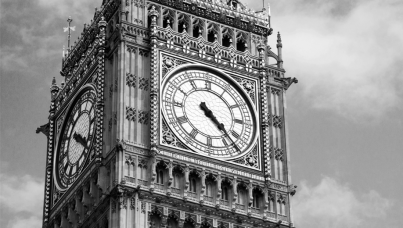Community as a Superpower: Why Refugees Seek Belonging
As summer brings increased numbers of asylum seekers across the English Channel, the political debate ignites. Why don't refugees remain in the first safe country they reach?
I want to reflect on this, given this World Refugee Day's theme of "Community as a Superpower," highlighting the crucial role community plays in the lives of refugees. For people forced to leave their homes in search of safety and a fresh start, the support and relationships they forge in new communities are vital.
The reality of refugee choices
While there's no legal obligation for refugees to claim asylum in the first safe country, most do remain in that initial country, often neighbouring their origin. This is due to limited resources, hope of returning home, similar customs, and reluctance from wealthier nations to provide safe routes.
However, some persevere toward specific destinations due to existing connections – knowing someone, speaking the language, or having cultural ties. These connections offer comfort during upheaval. Refugee journeys are dangerous, and these decisions aren't taken lightly.
My own family nearly separated when fleeing Vietnam in 1979. We were fortunate to survive and arrived in refugee camps in Hong Kong. Like many, we hoped to resettle in in Australia (due to its proximity to Vietnam), France (because of its colonial legacy), or the US (given its involvement in the Vietnam War). The UK offered us asylum first, and my parents gratefully accepted, prioritising stability for their young children.
Challenging misconceptions
The perception persists that refugees are "shopping around" and are really economic migrants. Our World Refugee Day survey reveals that 62% of Britons believe that most refugees are economic migrants or are seeking to exploit welfare services (Figure 1). Many overestimate the UK's refugee intake. The UK ranks fifth in Europe for asylum applications (8% of the EU+ and UK total) and 19th relative to population size (year ending June 2024), while most refugees are hosted in low- and middle-income countries.
These perceptions create tension: 71% of Britons support providing refuge to those fleeing war or persecution, but 49% support complete border closure – the highest since 2016. Many who advocate closure believe refugees are "bogus" and that the UK takes more than its fair share.
The news cycle amplifies these anxieties, inciting hostile government responses that worsen the situation and accelerate migration, including reduced humanitarian aid and weakened international organisations supporting refugees.
Figure 1: Findings from Ipsos’ World Refugee Day Survey 2025 for Great Britain

Solutions from the survey
Public backing for a shared approach
A key solution lies in supporting people to remain safely within their own countries whenever possible and providing support to countries hosting a disproportionate number of refugees. According to UNHCR, over 122 million people are forcibly displaced worldwide, including 42.7 million refugees. A staggering 73% of these refugees are hosted in low- and middle-income countries, placing immense strain on these nations.
A majority of Britons (56%) believe wealthier nations have a moral obligation to provide financial assistance to refugees, both within their own borders and in host countries. This support is closely tied to the public’s awareness of the long-term benefits that refugee support can bring to wealthier nations: those who believe in these benefits are twice as likely to support financial contributions to refugee initiatives. Yet, over a third (36%) of the British public currently do not see these potential advantages. Therefore, effectively communicating these long-term benefits is essential for securing sustained public backing.
Who should contribute more?
When asked which groups should contribute more to assist refugees globally given the current funding challenges, the British public primarily point to the governments of other wealthier nations (32%) and international organisations (31%). However, 1 in 5 (19%) also believe the UK government should increase its support, making it the third most cited group responsible for increased contributions. This indicates that while there’s a push for others to do more, a notable portion of the British public also recognises a need for increased domestic involvement.
Refugees in the UK: Integration and contribution
The British public is divided on whether refugees will successfully integrate and contribute to British society. This division reveals declining optimism, pointing to an urgent need for solutions that help refugees rebuild their lives and address public concerns.
Our research finds strong public support for giving refugees access to the job market (around 4 in 5 support giving refugees at least some access, compared to 1 in 10 who oppose it). Furthermore, Ipsos’ research for the Tent Partnership for Refugees shows there's support for UK companies to actively recruit refugees (49% in favour vs. 18% opposed). Over half believe refugee hires would positively ease the UK's labour shortages, preferring this over hiring overseas workers (52% vs. 28%). The public also recognise that investing in refugees’ employment creates a positive ripple effect - for refugees, for society, and for the economy.
Breaking down barriers to employment
Businesses like Ipsos and organisations like Breaking Barriers are crucial in connecting refugees with opportunities, recognising their resilience and talent. A key barrier is over-reliance on formal qualifications that are difficult for refugees to provide due to displacement or differences in educational systems. To address this, we are shifting to skills-based competency assessments that value practical abilities over certificates.
Returning to the initial question of why some refugees don't simply stay in the first safe country, the decision is complex, in the same way as public attitudes towards refugees are complex and often filled with contradictions. Bearing this in mind is crucial to working towards solutions that support refugees in rebuilding their lives and contributing to their new homes, while also addressing public concerns about integration. This is the driving force behind our annual global survey for World Refugee Day – to provide the evidence for these constructive discussions and find solutions that unlock the superpower of community for the mutual benefit of both refugees and local communities.
For the full global findings, please click here.


